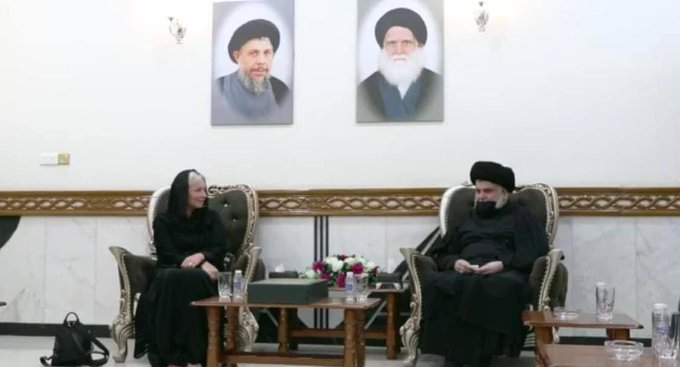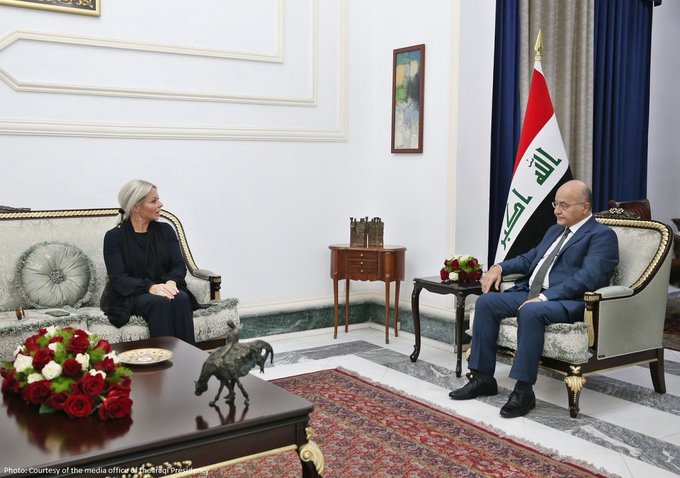Forty years ago, on Sept. 1, 1980, teen idol Shaun Cassidy, the younger brother of late Partridge Family star David, released what turned out to be his final full-length studio LP, Wasp. To say that the new wave album was a departure from what both his record label and fanbase expected would be a massive understatement. Produced by the legendary Todd Rundgren, Wasp boasted a slew of hip cover tunes — David Bowie’s “Rebel Rebel,” Talking Heads’ “The Book I Read,” the Who’s “So Sad About Us,” the Animals’ “It's My Life,” Ian Hunter’s “Once Bitten, Twice Shy,” even the Four Tops’ “Shake Me, Wake Me” — as well as four fiery, feisty, funky originals written or co-written by Rundgren himself.
The ambitious album was actually a credible attempt by the younger Cassidy to leave his teenybopper past behind, but coming out exactly 11 months before the advent of MTV, it failed to register with fans, critics, or radio programmers at the time. To this day, sadly, it remains largely forgotten — even by Cassidy himself, who freely admits that he had to relisten to Wasp in its entirety, for the first time in decades, just to prepare for this epic interview reexamining its legacy.
let's close with c.i.'s 'Iraq snapshot:'
Friday, August 5, 2022. In the words of the Mamas and the Papas, "Man, can't they see the world's on fire?"
Speaker of the House and political gadfly Nancy Pelosi remains in the news as her latest antics have global repercussions. John Stauber Tweets:
Jeffrey St. Clair (COUNTERPUNCH) observes:
I suppose there are more risible politicians on the scene today than Nancy Pelosi, but few come clad in her power accessories or with as much potential to inflict carnage on a global scale. Even the banshee of the backwoods Marjorie Taylor Greene is a mere pipsqueak compared to the malevolent lunacy we’ve seen lately from Pelosi.
Some may say that Pelosi, now 82, has entered her second childhood. If so, it’s a delinquent one. Certainly her political inhibitions have dissolved, allowing her natural inclination to foment trouble to run rampant. One looks in vain for a rational motivation behind her ad hoc trip to Taiwan, an act of belligerency that might have sparked a war with another nuclear power. But to what end? China is not going to relinquish its entirely legitimate claims to Taiwan. Far from a model democracy, Taiwan is a former gangster state, whose repressive government was shaped by Chiang Kai-Shek, who retreated there in 1949 with his battered gang of CIA-financed KMT thugs, where he promptly instituted a violent crackdown on leftists known as the White Terror, a vicious form of martial law that lasted for the next 45 years.
Sure Pelosi represents many rich Chinese exiles, who have made fortunes in San Francisco and now fantasize about sticking it to the CCP from the safety of their Nob Hill mansions. But Pelosi doesn’t need their money or support. She’s well beyond that now. (Though her husband Paul is surely watching with avaricious eyes the reaction of the markets to this junket of the damned.) Pelosi’s trip seems more personal, an almost pathological assertion of her autonomy. It’s the act of a playground bully and the Mad-Eyed Lady from Pac Heights has come to see the world as her playground–provocation for the sake of provocation. Damn the consequences.
The Speaker’s hubris has been accreting rapidly in the last decade. Once a capable, if not very creative, machine politician, she has now become baked by her own sense of power and runs the House like her own private autocracy, the leadership ranks stacked with her claque of senescent loyalists.
Now the second most powerful figurehead in the US government has gone rogue, enacting her very own Asian Pivot, flouting decades of US policy and even ignoring the requests of the increasingly feeble Joe Biden to scrub Taipei from her inflammatory itinerary. Nancy is the “Karen” of global geopolitics, a loose cannon intoxicated by her own self-righteousness. Like RGB, Pelosi apparently sees herself as an indispensable figure in American politics, even as a trapdoor slides open beneath her feet and that those of her party and country.
Why Pelosi picked China as her target du jour is no mystery. Like Biden (and Bernie Sanders, for that matter), Pelosi has always been a Cold Warrior. It’s the way she chooses to understand the world, even if it’s a world that no longer quite exists. The political economy Pelosi has done much to help engineer over the last 35 years needs perpetual enemies to justify the trillions sunk into the weapons-and-surveillance complex. And not ephemeral scrub units like Al Qaeda and ISIS. Big ones like Russia and China. But more sophisticated politicians, from Nixon to Obama, have understood that the trick is to keep the threat elevated without actually risking a war. Pelosi seems to have lost this inhibition, as well.
Thus the brazenness–one is tempted to say, desperation–of her Taiwan excursion is a pretty clear sign of imperial (as well as mental) slippage. Far from a show of strength, Pelosi’s antics in Taipei revealed the frailty of the US hegemon in the Pacific. Sure, China postured a bit in response with naval exercises encircling Taiwan, but Beijing, a much more reflective (if equally lethal) government than our own, must have viewed Pelosi’s frantic finger-wagging as little more than a parody of power, a shrill manifestation of America’s political decrepitude.
Following U.S. House Speaker Nancy Pelosi’s trip to Taiwan, which deliberately provoked the greatest crisis in the region in a quarter century, the United States has announced plans for its next provocation: sending aircraft and warships through the Taiwan Strait.
The US will conduct “air and maritime transits through the Taiwan Strait in the next few weeks,” White House spokesperson John Kirby said.
In June, Fortune reported that Beijing told US officials that China sees the Taiwan Strait as its territorial waters, leading to the possibility Chinese military forces could seek to block a transit by a US warship, potentially leading to a military clash.
Kirby announced that the USS Ronald Reagan carrier strike group, which is operating in the waters outside Taiwan, will extend its deployment in the area.
The US announcement came amid a military standoff over Taiwan. After Pelosi’s visit, China carried out live-fire exercises in the waters on all sides of Taiwan, forcing the cancellation of flights and the re-routing of ships.
China deployed over 100 aircraft and over 10 warships in its largest-ever military drills in the Taiwan Strait. China fired at least 11 ballistic missiles, some flying directly over mainland Taiwan, and deployed drones that flew over Taiwan’s Kinmen Islands.
And Dave DeCamp offers:
Pelosi’s visit to Taiwan was nothing other than a purposeful provocation that was intended to evoke the response that the PLA has given to justify more US military expansion in the region. Her trip didn’t benefit Taiwan, and it certainly didn’t defend democracy as she claimed it would.
Just as the US backing the removal of former Ukrainian President Viktor Yanukovych was a pivotal moment, so too is Pelosi’s provocation. Beijing has warned over and over again that Taiwan is a "red line" and that US support for the island’s "independence forces" will lead to war. But Pelosi, and the rest of the blob, didn’t listen, just as they didn’t listen to Russia’s warnings over Ukraine, and now Ukrainians are dying by the thousands.
We may still be a long way away from a hot war, but China will not back down, and there’s no sign the US is going to change course. Ultra-hawks in Congress are cranking out legislation to fundamentally change US policy toward Taiwan by sending them billions in military aid and requiring sanctions on China in response to a Chinese attack on the island, which would change the decades-old policy of "strategic ambiguity."
Where’s the opposition to all this madness? There is none, at least in Washington. Ro Khanna, the progressive House Democrat from California, who is so good on the wars in the Middle East, morphed into a neocon before our eyes when asked if he thinks Pelosi should go to Taiwan.
"We’re not going to let the Chinese Communist Party dictate where the Speaker of the House should go," Khanna puffed to CNN’s Wolf Blitzer. "We shouldn’t allow them to bluff and dictate to America, the greatest nation in the world, where our Speaker of the House should travel."
Pelosi’s provocation also gained backing from her Republican colleagues as escalating tensions with Beijing has strong bipartisan support.
What's going on in Iraq? The western media can't get the basic facts right. That's about the most consistent thing regarding in Iraq. John Davison has covered Iraq for REUTERS for many years. Yet he offers garbage like this, "Tens of thousands of followers of Shi'ite cleric Moqtada al-Sadr prayed on Friday at an iconic Baghdad military parade ground built by the late President Saddam Hussein, in yet another symbolic display of Sadr's sway over much of the Iraqi people."
There are two main problems with that sentence. Lets deal with "tens of thousands of followers" first. Friday is the day of worship in Iraq. People went to religious services and then went to the mmilitary parade ground on a day where even the Iraqi government sent workers home. "Hundreds" that's the number of Moqtada's cult that occupies Parliament. Are we not able to do comparisons -- are we cognitively challenged? He has a mission he wants his followers to take part in and he can only muster "hundreds." After worship, he calls for prayer and "tens of thousands" turn out.
You're not seeing the problem? Which is that the media has consistently overestimated him. Condi Rice made the same mistake too and, as we pointed out in real time, if she hadn't overreacted every time he might have faded away. She inflated his image and gave him the illusion of power that he really didn't have and the media bought into it and has continued to buy into it.
"Sadar's sway over much of the Iraqi people." Just stop lying. The whoring should leave John with a nasty rash.
Iraq has three main population groupings -- Shia, Kurds and Sunnis.
Sunnis loathe Moqtada al-Sadr and that will never change. Kurds do not follow Moqtada and approximately 60% see him as a threat to the country. So that leaves out two main groupings.
B-b-b-but the Shia love him, he's a Shi'ite cleric!!!!!!
He's not Grand Ayatollah Ali al-Sistani. He's not beloved by most Shi'ites or even liked by them. His father was famous. Moqtada is a killer. He's killed Americans, of course, but he's also killed Iraqis. He's popular in the slum of Baghdad that is Sadr City and he has some popularity in Basra. That's really his reach. He's not mentioned as a successor to Sistani. There are many Shi'ite leaders who are popular. Moqtada's tiny cult is not that impressive nor is it reflective of the bulk of Shi'ites.
And, most importantly, the Shi'ite youth rejected him. That's what The October Revolution was about. He tried to co-opt it, couldn't, so he turned on it. And it didn't bother them one bit. They mocked him and made fun of him.
Iraq is a young country with a median age of 21.
The Myth of Moqtada is very popular with the media. Most popular people, however, don't have to repeatedly flee their own country and hide out in Iran.
Jeanine Hennis-Plasschaert is the special envoy to Iraq for the United Nations Secretary-General.

She is meeting with various leaders -- including Moqtada -- to help a dialogue get started.
The US has an ambassador in Iraq, Alina L. Romanowski She finally made it to Iraq in June. No rush, apparently. She was confirmed in March. But she's there now. And addressing pressing issues, right?
It's a shame the US ambassador can't work on a dialogue. Some appear ready to make concessions:
Following rival Shia cleric Moqtada al-Sadr’s call, the Coordination Framework coalition has voiced support for any constitutional path to address Iraq’s political crisis, including early elections.
However, the coalition wants a government to first be formed under Mohammed Shia al-Sudani, its nominee for the post of prime minister, which will make the necessary preparations for early polls, Iraq’s Shafaq News agency reported.
The coalition, a collection of Iran-back groups, held an emergency meeting on Thursday, a day after al-Sadr called for the dissolution of parliament and early elections, demands that could prolong a deadlock that has left Iraq without an elected government since last October.
Iraqi Shia Muslim leader Moqtada Sadr is calling for elections, months after polls failed to lead to an agreement on a new government, prime minister and president.
As Sadr's supporters occupy parliament for a sixth day, is the powerful cleric bluffing? Or could his call see a negotiated end to months of political deadlock in the oil-rich but impoverished country?
In multi-confessional and multi-ethnic Iraq, government formation has involved complex negotiations since a 2003 US-led invasion toppled dictator Saddam Hussein.
Sadr's bloc emerged from elections in October as the biggest parliamentary faction, but still far short of a majority.
In June, his 73 lawmakers quit in a bid to break a logjam over establishment of a new government.
That led to a rival Shiite bloc, the pro-Iran Coordination Framework, becoming the largest in parliament.
Its nomination of former cabinet minister Mohammed Shia al-Sudani as prime minister angered the Sadrists and triggered their occupation of parliament.
"Sadr expects to be the senior partner in any new government. Otherwise, he will continue to block government formation," said assistant professor Fanar Haddad of the University of Copenhagen.
"Likewise, he cannot allow parliament to reconvene without his MPs."
Parliament can only be dissolved by a majority vote, according to the constitution. Such a vote can take place at the request of a third of lawmakers, or by the prime minister with the president's agreement.
According to Ihsan al-Shammari, a political scientist at the University of Baghdad, Sadr's call for early elections aims to ensure "his return to parliament with more seats than before".
The following sites updated:













